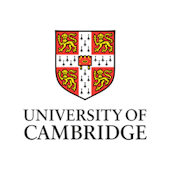Dr Arthur Dudney is a Leverhulme Early Career Fellow at the Faculty of Asian and Middle Eastern Studies at Cambridge University, from August 2015 until August 2018. His three-year research project aims to write a history of Persian literary education, focussing on places like India where Persian was culturally important but not the local language of everyday life.
For much of the last millennium, Persian was a language of high culture, literary production, and administration across much of Asia. Though Persian was its common currency, this vast cultural zone was multilingual (and even within Iran a courtly standard Persian always coexisted with local dialects). My Leverhulme-funded project "Making Persianate People: Histories of Persian Literary Education Beyond Iran" will provide a long history of Persian-language literary education with the aim of better understanding the Persianate (that is, the Persian language-using) world. With a focus on pre-modern India, it uses largely untapped sources to offer new perspectives on the historical relationship of trans-regional cultural forms with local contexts.
As the Mellon Postdoctoral Fellow in Early-Modern Indian Cultures of Knowledge at Oxford (2013-15), I used Persian lexicography as a source for intellectual and cultural history. This approach is still a key part of my new project. Dictionary-making was the site of a great deal of scholarly effort and contestation in early-modern South Asia. Dictionaries were encyclopaedic in scope and so can help us to answer fundamental questions about society and thought. My particular interest is making use of these little-studied texts to trace the development of concepts. The dictionary-writers were a remarkable group of intellectuals from different religious backgrounds who were often members of the elite corps of Mughal administration. They actively engaged with the question of how India fit into the Persianate world, but later scholarship has done them a disservice by typically reading these debates through anachronistic concerns about linguistic nationalism, which my work attempts to redress through reconsidering primary sources.
Both projects build upon my PhD thesis, which explores the thought and influence of Siraj al-Din ‘Ali Khan (d. 1756), known as Arzu. He was an Indian courtier who brought the study of literary language in Persian to its premodern apogee, and was also regarded as a pioneering educationalist and lexicographer. Literary criticism of the sort practised by Arzu and his circle was not a leisure-time activity but had for centuries been seen as crucial to political legitimacy. My work has demonstrated his importance in Persian stylistic debates as well as his foundational role in Urdu literature, which is widely acknowledged but has not been analysed holistically in light of his Persian literary theory.
Experience
-
–presentLeverhulme Early Career Fellow, Asian and Middle Eastern Studies, University of Cambridge
Education
-
2013Columbia University, PhD, Middle Eastern, South Asian, and African Studies
- Website
- Article Feed
- add38@cam.ac.uk
- ORCID
- Joined


